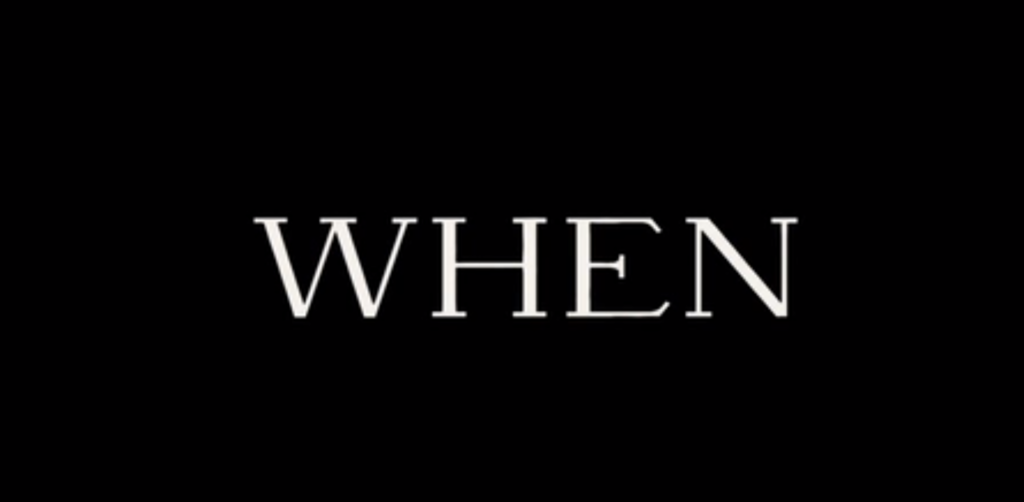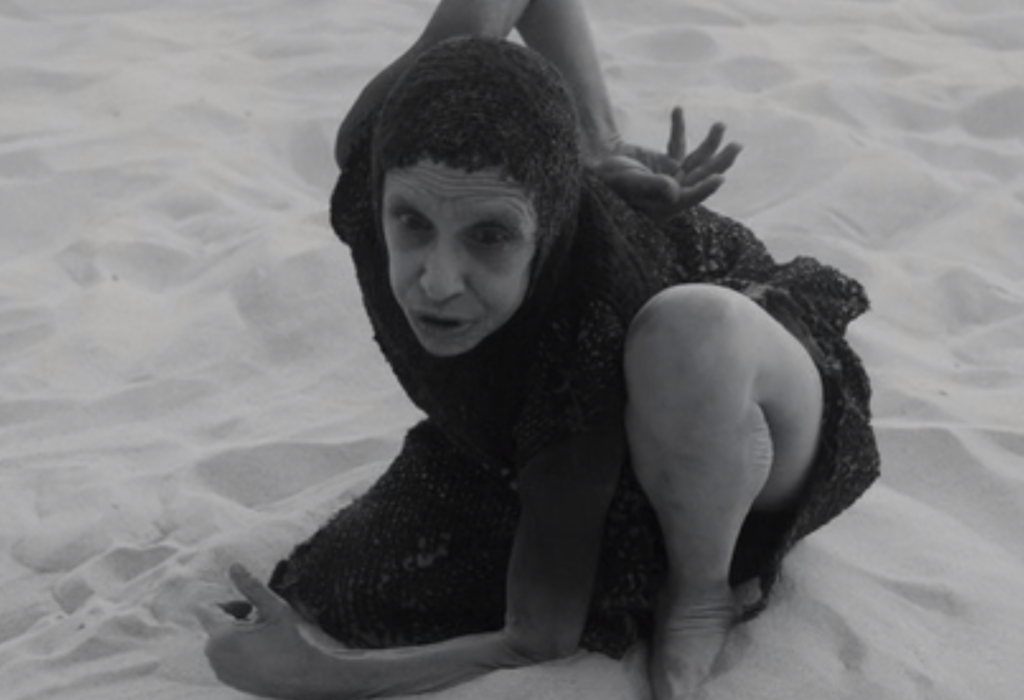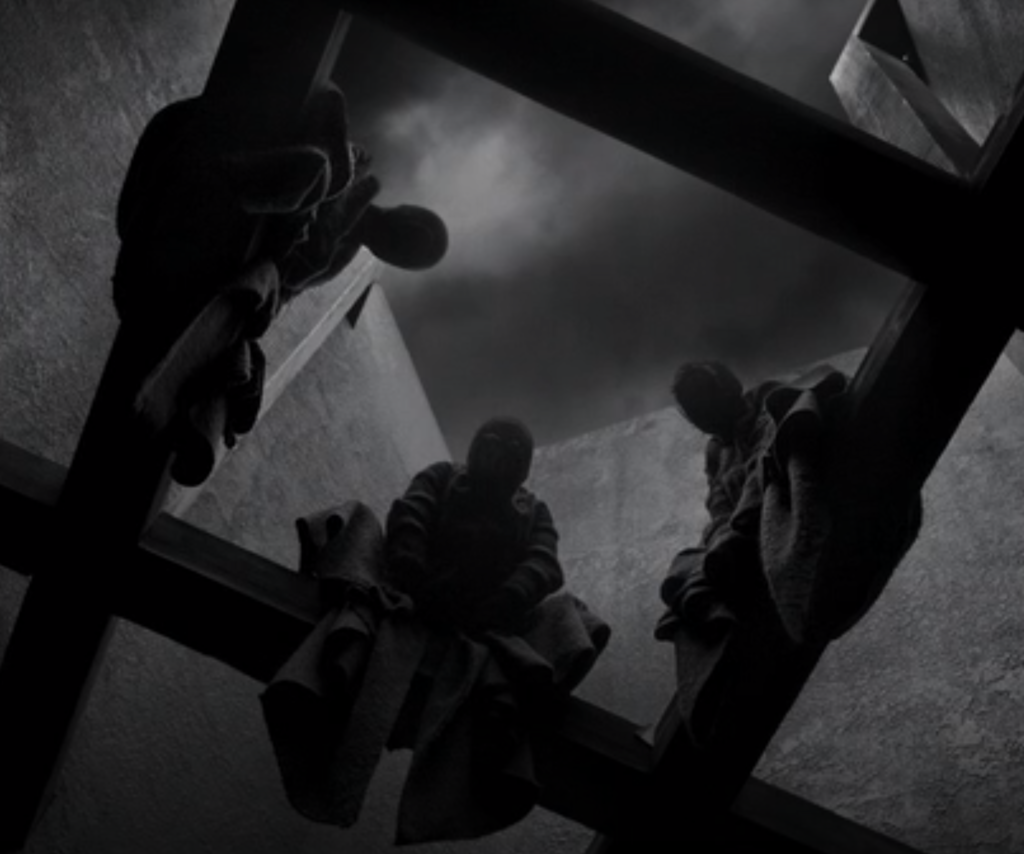There’s lots to like in Joel Coen’s intense and gorgeously abstract film of “The Tragedy of Macbeth,” including charisma and clarity from the two leads, Denzel Washington as the weary and isolated tragic hero and Frances McDormand as his fiery Lady. I always focus on the marriage when I see this play, and while this version of the doomed couple wasn’t the most emotionally vibrant that I’ve seen — that goes to a blazing Cheek by Jowl staging I saw in Brooklyn in 2011 — they played the heart’s core with sympathy and affection. I might have more to say about them later!
But the highlight of the film, without question, was Kathryn Hunter who played a composite of all three Weird Sisters in an eerie, resonant performance that’s still buzzing in my imagination. She even, in a wonderful surprise, tossed in the role of the semi-prophetic Old Man who reports on Duncan’s cannibal horses in 2.4. (The Sisters, we may recall, as only ambiguously female, as Banquo emphasizes: “You should be women / And yet your beards forbid me to interpret / That you are so” (1.3.45-47). The lush tangle of beard that Hunter boasts when she returns as the Old Man makes a witty call-back to this famous line!

I’ve seen Hunter bring her brand of acrobatics and deep vocal resonance to Shakespeare twice before, both times at the Theater for a New Audience’s Polonsky Shakespeare Center in Brooklyn. She opened the then-new theater in 2013 by descending from the ceiling on a rope as Puck in Julie Taymor’s Midsummer Night’s Dream, later filmed. More recently, she played a deeply sympathetic Timon of Athens, in one of the last plays I saw pre-Covid. She’s an amazing and unsettling performer.

The Weird Sisters seem an even better vehicle for her talents than Puck or Timon. When she needed to occupy the tragic center of an entire play, the humanity of her Timon somewhat muted the figure’s tragic rage. As Puck, she was a great accompaniment to Taymor’s stagings, but also a bit overshadowed. The Sisters appear in three scenes (1.1, 1.3, 4.1 – Coen cuts the Hecate scene 3.5), to which Hunter adds the Old Man’s brief musings in 2.4. She steals every scene she’s in, and stays mysterious enough that the secret doesn’t get stale.
In the incantations of 1.1 she’s invisible, leaving the viewers to puzzle through the single voice that encompasses “we three” (1.1.1).
In 1.3 she startles at first by showing off the human “pilot’s thumb” (1.3.28) by holding it up between her toes. Her contortions, presented on an expanse of haze and sand, before she meets Macbeth and Banquo remain my favorite moments in the film. Shakespeare’s lines get juggled around a bit, and some lovely bits about my favorite thing, shipwreck, get cut (alas for “Though his bark cannot be lost / Yet it shall be tempest-tossed” 1.3.24-25) – but the intimate camera work and Hunter’s uncanny ability to turn and change make this a wonderfully thrilling few minutes of film. It’s very short — roughly 5:40 – 7:47 in the film — and gets more interesting every time I look back at it.

The interpretation-forbidding beard of the Old Man makes a wonderful joke, and I love that out-take feeling of the presentation of 2.4 (45:40-47:50). Hunter’s Old Man extends the premonition-making of her Sisters, and the wry smile when describing equine cannibalism suggests a pleasure on the far side of order and humanity. “Tis unnatural,” the Old Man intones, “even like the deed that’s done” (2.4.10-11).
The Weird Sisters represent Shakespeare’s complex meditation on fate or other unintelligible supernatural ordering principles. They lead the Macbeths into temptation, but also promise Banquo royal futurity and in their final scene (4.1) present a line of kings leading presumably to Shakespeare’s own monarch James I, who traced his lineage to Banquo’s family. In Shakespeare’s play, Macbeth returns to them at the wild heath, where he seeks, “By the worst means, the worst” (3.4.134). In Coen’s film, Hunter appears in triplicate inside Macbeth’s castle (107:50 – 1:12:00), and the cauldron into which fall finger and liver appears within the King’s home, a kind of supernatural bath or pool. Hunter whispers the deceiving prophecies and Washington’s Macbeth semi-whispers back to her, so their low voices perform an intimate connection. “Seek to know no more” (4.1.102), Hunter’s closes her truncated and final appearance as the Sisters. As usual, the Sister present truncated knowledge.
Hunter does, however, have one last extra-Shakespearean scene as the Old Man. In an oblique echo of the final scene of Polanski’s 1971 film, Coen gives us a glimpse of the conspiracies to come in Scotland. In Coen’s version, Ross — who as played with sinister intensity with Alex Hassell is another treat in the film — presses a coin into the hand of Hunter’s Old Man, who then delivers Fleance, Banquo’s son. Ross pulls him roughly up onto his horse, and they ride into a valley — out of which a dense murder of crows screeches into view, providing a violent play on film’s traditional “fade to black” moment of closure and probably also a color-inverted reference to Hitchcock’s 1963 horror classic “The Birds.” Crows have represented the visual landscape of the Sisters since the opening of the play, and even Banquo’s ghost in the banquet scene appears to exit the castle as a screeching bird.
I may try to get to a theater to see it on a big screen, though I might give Omicron a little more time!
